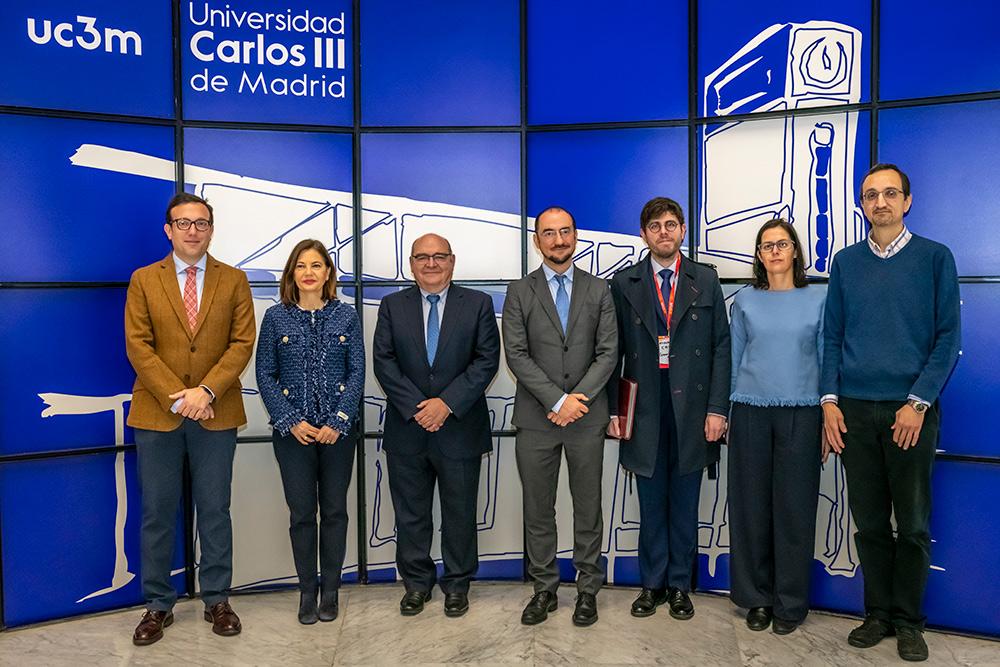UC3M and SEPIE hold a conference to analyse the access and admission of international students to Bachelor's Degrees
1/16/24
The Universidad Carlos III de Madrid (UC3M) and the Spanish Service for the Internationalisation of Education (SEPIE) have held a meeting to analyse the access and admission to Bachelor's degrees of international students. The event took place in the auditorium on the UC3M Madrid – Puerta de Toledo campus.

The Rector of the University pointed out that "the international mobility of university students is the greatest tool at the service of international integration. Just as nothing has done more for European integration than the Erasmus programme, the next step is the deployment of university education through the European University Alliances. All the Public Universities of Madrid are part of Prestigious European Alliances, so we bring together more than 50 leading international universities. Hand in hand with both central and regional administrations and through an essential and firm commitment to public and sustainable investment, we are called to make Madrid the International Knowledge Campus. Spain is in a privileged position to lead the connection of the university fabric between Europe, the USA and Latin America, and this strategic commitment should make our country a leader in international mobility".
For his part, the General Secretary of Universities of the Ministry of Science, Innovation and Universities indicated during his speech that "the Ministry of Science, Innovation and Universities has recently worked on the next Spanish Royal Decree, which includes two important articles; specifically one of them is that students from the EU or from other States that have signed international agreements applicable to university access on a reciprocal basis will not have to take an entrance exam. In this way, agreements are being established with different countries, such as with Colombia, recently. Together with rectors, Crue and the Autonomous Communities, this article is working on defining, shaping and working on this entrance exam to make it viable and flexible for students and universities. The Ministry hopes that this conference will serve to work together and facilitate international students' access to Spanish universities".
Likewise, the Director General for Universities of the Community of Madrid stressed that "Madrid is fashionable in the sense of internationalisation and the university system. From the Government of the Community of Madrid we offer the CIAU (University Information and Counselling Centre) to students, which deals with a large number of emails and calls and a third of these requests are from non-EU students. Through the CIAU we deal with different doubts and requests that we hope, thanks to today's event, to resolve and work together to respond to these students' requests".
The event consisted of three sessions. The first, called "Access and admission of international students to the Universidad Carlos III de Madrid: a benchmark innovative model in Spain", was given by the director of the Carlos III International School, Álvaro Escribano.
The second session, entitled "Access and admission to undergraduate studies for international students in the main global centres of talent attraction", included three round tables in which representatives from the industrial, institutional and educational sectors participated. These focused on degree access systems for international students and their impact on the internationalisation of education systems; access modalities and degree admission in the United States and the United Kingdom; and access and admission modalities for international students in the European Union.
The last session revolved around access and admission to undergraduate studies for international students in Spain. It consisted of two round tables, on the perspective of Spanish universities on access and admission systems; and academic, legislative and socio-economic considerations.
The day ended with a closing ceremony by the UC3M rector and the SEPIE director.